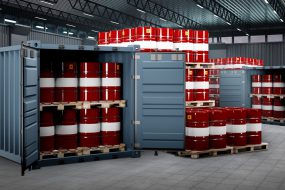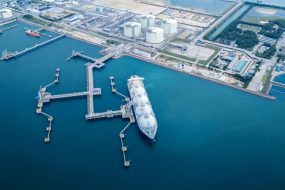The GCC is taking on the energy trilemma head-on by boldly diversifying its energy portfolio, challenging their historic dependence on oil and gas.
Oil and Gas and Energy Shipping and Logistics
When you’re juggling three critical factors—security, equity, and environmental sustainability—that’s the energy trilemma. It’s a challenge that the world is grappling with as we aim for a sustainable, inclusive, and secure energy future. An interesting region to focus on is the GCC.
Let’s dive into how the GCC is addressing this energy trilemma and forging a path towards a balanced energy future. But before we do that, let’s break down what this energy trilemma is all about.
Related article: Diving Deep into the Secrets of Oil and Gas Diver Safety
The energy trilemma: a balancing act of three main factors
Security
This element is all about ensuring a consistent and reliable energy supply. We’re talking about no power outages and a solid backup plan in case of a crisis.
Equity
Here, we focus on affordable access to energy. Nobody should be left in the dark—literally—due to high energy costs.
Environmental sustainability
Finally, we can’t forget about mother nature. Sustainable energy use means limiting greenhouse gas emissions and environmental degradation.
Balancing these three elements is a tricky task. But the GCC, despite being known for its vast reserves of fossil fuels, is making strides towards a balanced energy future.
Oil and Gas and Energy Shipping and Logistics
Navigating the trilemma: GCC’s approach
1. Diversifying energy sources
One crucial way the GCC is addressing the energy trilemma is by diversifying its energy sources, moving away from an over-reliance on oil and gas. Instead, countries are investing in renewables like solar and wind power. Take, for example, the Mohammed bin Rashid Al Maktoum Solar Park in Dubai—it’s one of the largest solar parks in the world.
Mohammed bin Rashid Al Maktoum Solar Park in Dubai is one of the largest solar parks in the world.
2. Investing in energy efficiency
The GCC is also addressing equity by promoting energy efficiency, thus reducing the amount of energy required to provide products and services. Again, this is a win-win—it helps reduce energy costs and lowers greenhouse gas emissions. Saudi Arabia, for instance, has launched an ambitious nationwide initiative—Saudi Energy Efficiency Program—to promote energy conservation.
Saudi Arabia has launched an ambitious nationwide initiative—Saudi Energy Efficiency Program—to promote energy conservation.
Nuclear energy is also expected to play a vital role in the GCC’s energy mix and diversification strategies. For instance, once fully online, the UAE’sBarakah nuclear facility can potentially reduce gas consumption in 2030 by 900mn to 1200mn cubic feet per day.
Related article: 10 Latest Refinery Technologies Improving Safety and Efficiency
The UAE’s Barakah nuclear facility can potentially reduce gas consumption in 2030 by 900mn to 1200mn cubic feet per day.
3. Developing sustainable cities
Next on the list is urban sustainability. The GCC is investing in green building and city planning, which can help achieve the trilemma balance. As part of their strategy to establish diversified and sustainable economies, governments across the GCC are rolling out initiatives focused on intelligent transportation systems, advanced infrastructure, and innovative building design.
For instance, Masdar City in Abu Dhabi is a model for sustainable urban development, with its low-carbon design and renewable energy sources.
Masdar City in Abu Dhabi is a model for sustainable urban development, with its low-carbon design and renewable energy sources.
According to the UAE Ministry of Economy The global smart cities market is forecast to nearly double to $873.7 billion by 2026 from $457 billion in 2021 at a CAGR of 13.8% during the period.
The global smart cities market is forecast to nearly double to $873.7 billion by 2026.
Related article: Oil and Gas Logistics Companies Adapt to an LNG-powered Future
4. Encouraging research and innovation
Finally, the GCC is fostering a culture of innovation and research in sustainable energy. By partnering with universities and tech companies, they’re encouraging new ideas and technologies to address the energy trilemma.
Key takeaway
The GCC’s journey in navigating the energy trilemma is an ongoing one. With the steps that are being taken—diversifying energy sources, promoting energy efficiency, investing in sustainable cities, and fostering innovation— it’s the start of an important beginning.
With this multi-pronged approach, the GCC is showing that it’s possible to balance energy security, equity, and environmental sustainability. Moreover, it serves as a unique example of a region traditionally dependent on fossil fuels now taking bold steps towards a sustainable energy future. The energy trilemma may be a juggling act, but the GCC is showing us that it’s one that can be managed.




